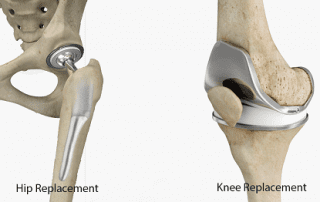
The holiday season is a busy and exciting time of year, but it can also be quite stressful. Between shopping, parties, traveling, and visiting family, it’s easy for your regular exercise routine to fall by the wayside. Research has shown that physical activity levels tend to decrease the most after holidays.
That’s why it’s so important to make your health a priority this time of year. Regular exercise can actually help reduce holiday stress and keep you feeling your best.
Here are some of the key benefits of maintaining your fitness routine:
Stress Management
The holidays bring a lot of added demands on your time and energy. Exercise is a proven way to manage stress and improve your mood. When you work out, your body releases endorphins that can lift your spirits and help you better cope with the pressures of the season. Making time to be active, even just a little big each day, can go a long way in keeping you calm and centered.
Immune System Support
Cold and flu season tends to ramp up during the winter months. Staying active can help support your immune system and reduce your risk of getting sick. Keeping up with your workouts makes you less susceptible to holiday illnesses that could derail your plans.
Weight Management
The holidays are full of rich, indulgent foods that can pack on extra pounds if you’re not careful. Regular physical activity helps you maintain a healthy weight by burning calories and boosting your metabolism. It also gives you an outlet for all the extra energy you may have from eating richer foods.
If you’re having trouble sticking to your exercise routine, consider talking to your physical therapist. They can create a customized fitness plan to help you stay on track, even with a busy holiday schedule. Physical therapists can teach you exercises you can do at home and provide tips for fitting activity into your day.
Here are a few quick tips to help you stay active this holiday season:
- Schedule your workouts like any other important appointment and don’t cancel them.
- Find ways to be active with friends and family, like going for a walk after a meal.
- Keep home exercise equipment (like weights or a yoga mat) accessible and ready to use.
- Park further away from stores and buildings to get in extra steps.
Don’t let the hustle and bustle of the holidays derail your health and fitness goals. With a little planning and creativity, you can maintain your exercise routine and enjoy a happier, healthier holiday season.
Keep Reading…
Runner’s Knee (Patellofemoral Pain Syndrome)
According to a recent article published in U.S. News, 5 Common Running Injuries and How to Heal Them, 50% of running injuries are estimated to occur at the knee. If you are a runner that experiences pain in the kneecap during activities like running, squatting, prolonged sitting, or going down the stairs, you likely have patellofemoral pain syndrome (PFPS), or “runner’s knee”.
Preoperative Physical Therapy: How to decrease cost
“Health-care costs following acute hospital care have been identified as a major contributor to regional variation in Medicare spending” (Snow et al., 2014)
Physical Therapy: Early and Frequent Mobility
The phrase “early and frequent mobility” is being used all across the medical field, from a health and wellness point of view, to patient care in ICU. For many years physical therapists have promoted this treatment strategy. Physical therapists can provide interventions to improve patient quality of life through all stages of healing; acute, subacute and chronic. Why wait until the chronic stage of an injury to get treatment, “current evidence suggests
Lumbar disc herniations: Spontaneous healing and the accuracy of MRI

Magnetic resonance imaging, more commonly known as MRI, can be a valuable and important tool but how reliable is it? MRI’s are utilized by many physicians in the diagnosis and management of musculoskeletal injuries. An important thing to keep in mind is that






